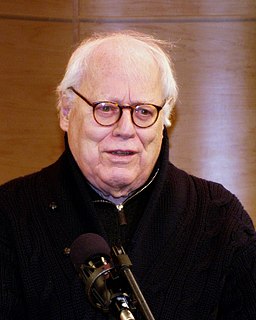A Quote by Jason Epstein
Bookstores will not disappear but will exploit digital technologies to increase their virtual and physical inventories, and perhaps become publishers themselves.
Related Quotes
The human race will disappear. Other races will appear and disappear in turn. The sky will become icy and void, pierced by the feeble light of half-dead stars. Which will also disappear. Everything will disappear. And what human beings do is just as free of sense as the free motion of elementary particles. Good, evil, morality, feelings? Pure 'Victorian fictions'. Only egotism exists.
I am a big fan of the electronic book. I hate to see the old bookstores close, but they have to reinvent themselves. I believe the First Edition bookstore will be the next thing. People will read electronically, then decide they want to own that book. The author will then be invited to the old bookstores to sign. I think books will always be with us, but they will fill a different need.
For physical goods, there are costs associated with logistics and lead times, owing to inventories and poor forecasts of the market. With digital capital-intensive technology, however, production will inevitably move toward the final market, wherever it is. This re-localization constitutes a major shift in the structure of global supply networks.
Back in the 1980s, when the internet was only available to a small number of pioneers, I was often confronted by people who feared that the strange technologies I was working on, like virtual reality, might unleash the demons of human nature. For instance, would people become addicted to virtual reality as if it were a drug? Would they become trapped in it, unable to escape back to the physical world where the rest of us live? Some of the questions were silly, and others were prescient.
I realize the dominating thoughts of my mind will eventually reproduce themselves in outward, physical action and gradually transform themselves into physical reality, therefore, I will concentrate my thoughts for thirty minutes daily, upon the task of thinking of the person I intend to become, thereby creating in my mind a clear mental picture of that person.
There is, then, no danger in the circumstances that anti-semitism will disappear, for it is the Jews themselves who add fuel to its flames and see that it is kept well stoked. Before the opposition to it can disappear, the malady itself must disappear. And from that point of view, you can rely on the Jews: as long as they survive, anti-semitism will never fade. (13th February 1945)


































